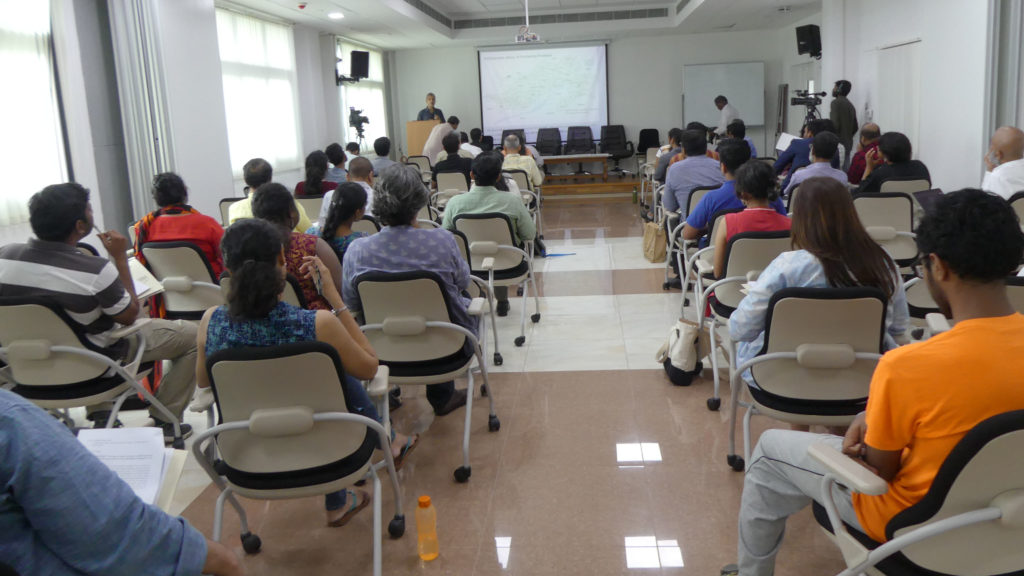August 18, 2019, Chennai: The recently concluded two-day conference on Energy Finance in India at IIT Madras witnessed enthusiastic participation from various regulators, experts, industry leaders, bankers, activists and discussion on issues related to past, present and future of the Indian energy trajectory; role of finance in energy transition; financial crisis in power discoms; moving towards a secure, sustainable and innovative energy sector; socio-economic costs of the Indian energy story; state regulations and energy governance.
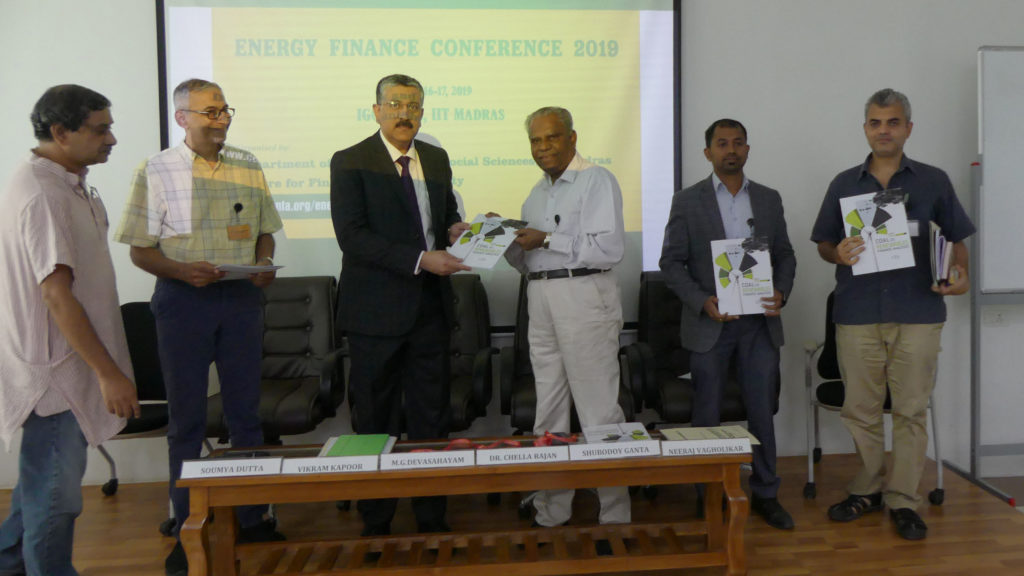
The conference started with the release of CFA’s annual Coal V/s Renewable report, which studied the investments made by the Public and Private Sector Banks on the coal and renewable energy in the calendar year 2018. The report revealed an astonishing 90% decline in 2018 coal power project finance/lending compared to 2017. The report was released by Vikram Kapoor, CMD, TANGEDCO; M.G. Devasahayam, former Member and Chairman, Haryana State Electricity Board; Soumya Dutta, Advisory Board member, the UN Climate Technology Centre & Network; Prof Sudhir Chella Rajan, IIT Madras, and others.
 Speaking on the occasion, Vikram Kapoor, CMD, TANGEDCO, said, “The agenda of climate change needs to be put on a pedestal with primacy to be given to carbon emission reductions. It will be important to give specific targets to government agencies and enable them to achieve quantified emission reduction to be able to sustain renewables scale-up and energy efficiency gains in India.”
Speaking on the occasion, Vikram Kapoor, CMD, TANGEDCO, said, “The agenda of climate change needs to be put on a pedestal with primacy to be given to carbon emission reductions. It will be important to give specific targets to government agencies and enable them to achieve quantified emission reduction to be able to sustain renewables scale-up and energy efficiency gains in India.”
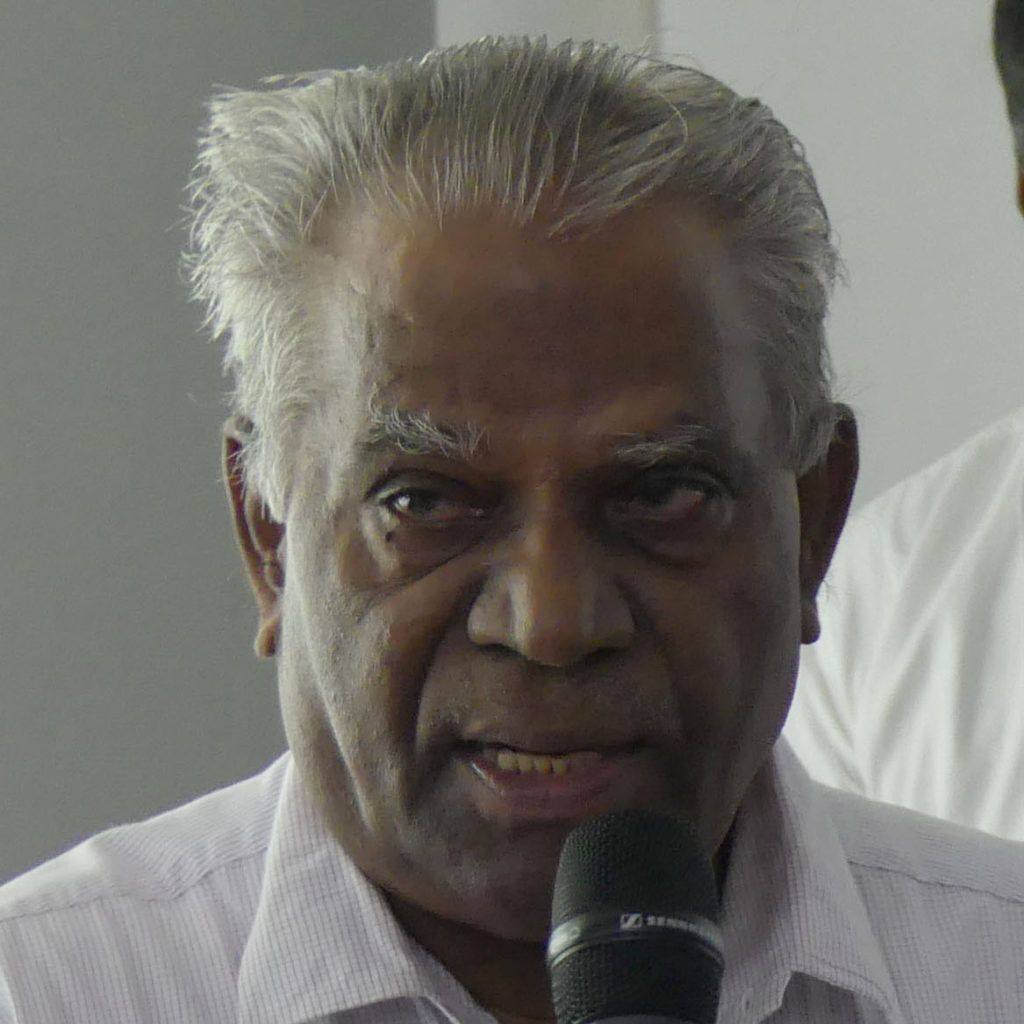 Referring to the solar grid in India, MG Devasahayam, former Chairman of the Haryana Electricity Board said, “The policy of centralised solar grid is wrong as a power system designed around renewable energy must both be flexible and allow for power storage. Setting up of mega and ultra-mega solar plants is not the way forward.” “Forcing solar into an inefficient centralised grid has serious ecological and economic consequences,” he stressed.
Referring to the solar grid in India, MG Devasahayam, former Chairman of the Haryana Electricity Board said, “The policy of centralised solar grid is wrong as a power system designed around renewable energy must both be flexible and allow for power storage. Setting up of mega and ultra-mega solar plants is not the way forward.” “Forcing solar into an inefficient centralised grid has serious ecological and economic consequences,” he stressed.
Outlining the trends and challenges in the electricity in India, Prof Sudhir Chella Rajan, of IIT-Madras said, “India’s electricity generation, particularly for coal and renewables, expansion has been most dramatic post-2005, which led to increased energy access. However, the losses also remain high due to various reasons.” To resolve this, Dr Rajan underlined the need to improve the finances of DISCOMs by allowing them to capture energy efficiency gains; decreasing their exposure to subsidies; enhancing the scope of distributed power and community-scale micro-utilities, reducing portfolio risk; improving access and environmental management by integrated resource planning at the regional scale.
The conference, which was jointly organised by the Department of Humanities and Social Sciences, IIT-Madras and the Centre for Financial Accountability, New Delhi, was addressed by Vikram Kapoor, CMD, TANGEDCO; M.G. Devasahayam, former Member and Chairman, Haryana State Electricity Board; VP Raja, former Chairman of the Ministry of Environment and Forest’s Expert Appraisal Committee on Thermal Projects and Coal Mining; Shuboday Ganta, Associate Vice President, Transaction Advisory Services, Ernst & Young; Paranjoy Guha Thakurta, veteran journalist and filmmaker; Rishabh Jain, Manager – Market Intelligence, Centre for Energy Finance, Council on Energy, Environment and Water; Ashok Shreenivas, Senior Fellow at Prayas (Energy Group); K. E. Raghunathan, MD, Solkar Solar Industry Limited; Svati Bhogle, CEO, Technology Informatics Design Endeavour (TIDE); Nitin Sethi, Business Standard; Vibhuti Garg, Energy Economist, Institute for Energy Economics and Financial Analysis; Dr Thomas Franco, former General Secretary, All India Bank Officers Confederation; Nityanand Jayaraman, writer and researcher; Leo Saldanha, Environment Support Group; Bhargavi Rao, Independent Researcher; among others.
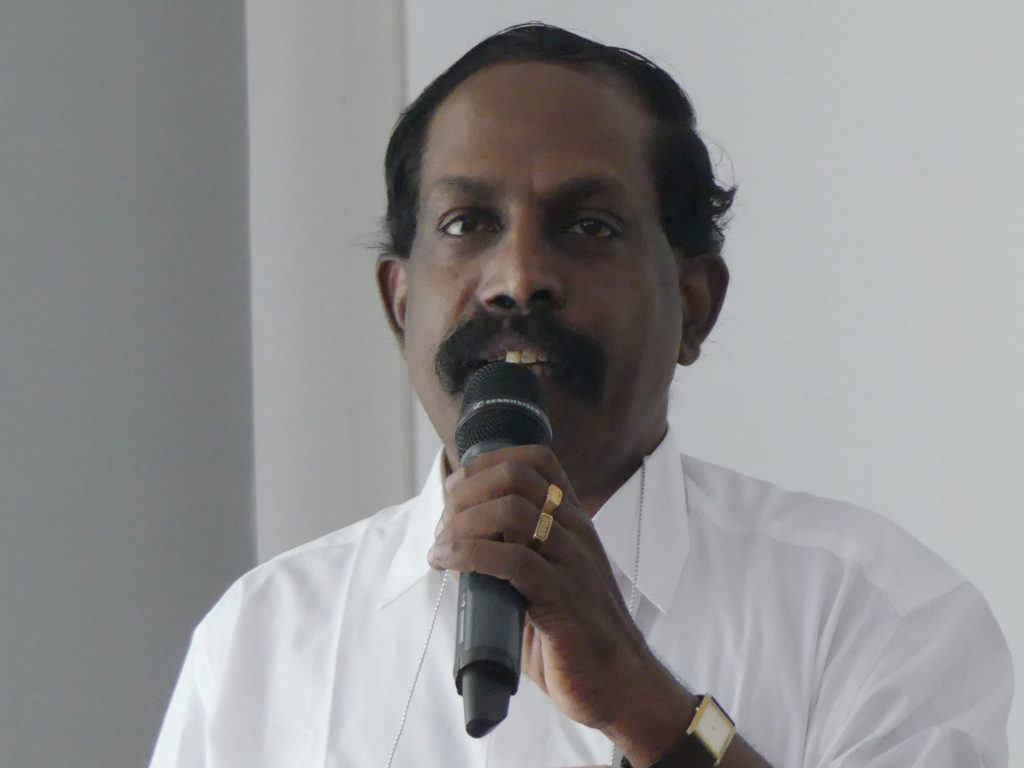 Speaking on the current NPA crisis in the banking sector, which is largely due to the crisis in the energy and infrastructure sector, Thomas Franco, Thomas Franco, proposed, “No Mega Power Plant or Energy Companies with bank loans; Strengthening entire Public Sector and reintroducing Development Finance Institutions; Focussing on the R&D for alternative sources of energy; Improving storage of solar power, rooftop solar, and connectivity with the grid.”
Speaking on the current NPA crisis in the banking sector, which is largely due to the crisis in the energy and infrastructure sector, Thomas Franco, Thomas Franco, proposed, “No Mega Power Plant or Energy Companies with bank loans; Strengthening entire Public Sector and reintroducing Development Finance Institutions; Focussing on the R&D for alternative sources of energy; Improving storage of solar power, rooftop solar, and connectivity with the grid.”
Drawing the attention of the impacts of fossil fuel and huge renewable energy projects on the health, Pooja Kumar of the Coastal Resource Centre said that Tamil Nadu’s water-intensive industries, including power generation and large infrastructure projects, are being set up in Ennore- North Chennai; Neyveli Kadaloor; Thoothukudi south clusters. All this has resulted in ecological concerns like change in land use pattern, pollution and reduction of ecological productivity; and impact on the mental and physical health of the communities living in this area.

Speaking on the correlation between water crisis and the coal power, Srinivas Krishnaswamy, Chief Executive Officer, Vasudha Foundation, said “Coal Power Plants are water intensive as they require water for various processes. The production by the power plants depends on the availability of water.” Explaining this argument, he said that between 2012 & 2019 water scarcity was reportedly responsible for the coal power generation losses of 6 billion kWh/year. He demanded that the permission for new power plants be given on a detailed assessment of water availability amongst others.
KE Raghunandan, MD, Solkar Solar Industry Limited, said that the growth of the solar industry is stymied due to the bureaucratic hurdles and financing of the projects. He lamented that Government is reluctant to buy power from private producers, which has discouraged private players from investing in the sector.
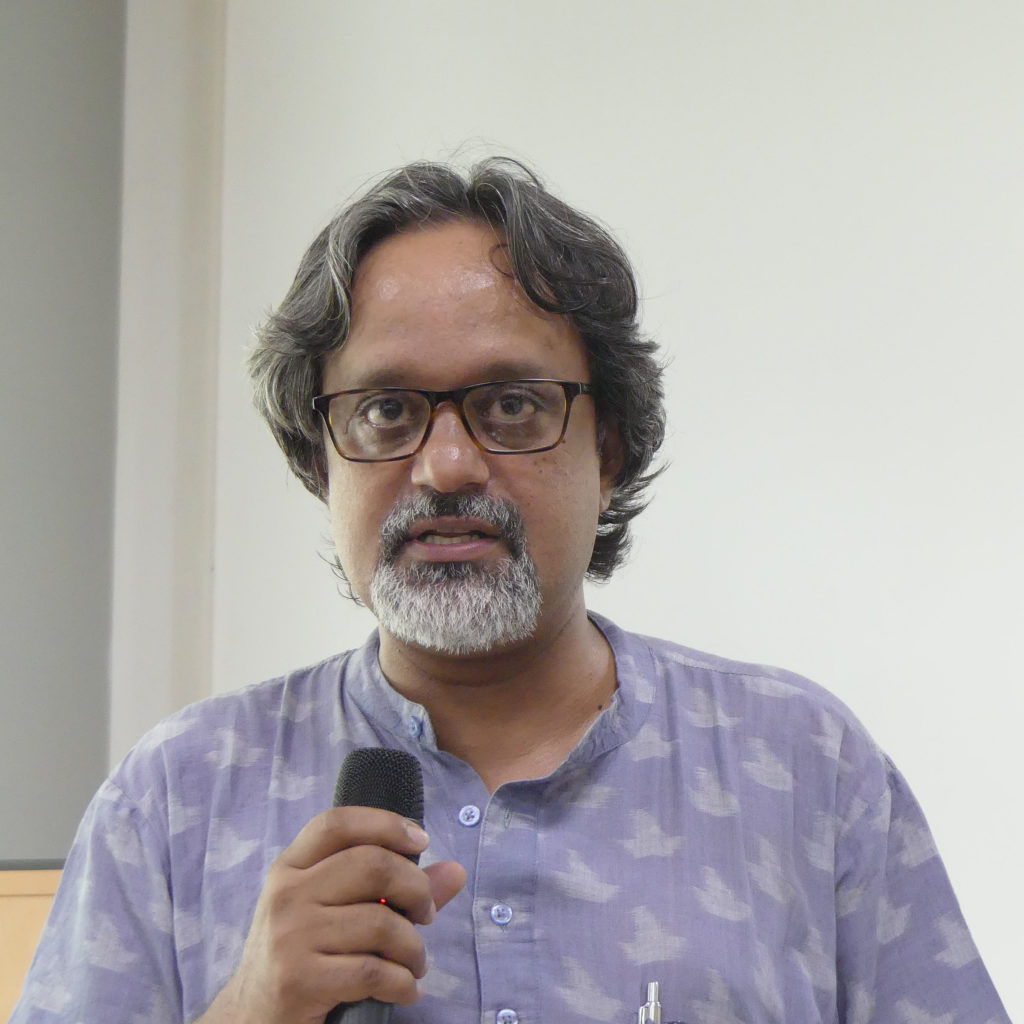 Joe Athialy, executive director of the CFA, in his presentation on the key financiers behind coal and renewable energy projects in India, through CFA’s analysis of the investment in the energy during 2005-2019 showed that majority of the projects were funded by the PSBs. He stressed that due to the reckless funding today 40 per cent of NPAs of the PSBs is by the power sector. “On many of these NPAs, the banks had to take up to 80 per cent of haircut. All of these has resulted in the introduction of various bank charges in the name of providing services, which affect poor the most,” he added.
Joe Athialy, executive director of the CFA, in his presentation on the key financiers behind coal and renewable energy projects in India, through CFA’s analysis of the investment in the energy during 2005-2019 showed that majority of the projects were funded by the PSBs. He stressed that due to the reckless funding today 40 per cent of NPAs of the PSBs is by the power sector. “On many of these NPAs, the banks had to take up to 80 per cent of haircut. All of these has resulted in the introduction of various bank charges in the name of providing services, which affect poor the most,” he added.
The presentations and the videos of the Conference will be uploaded here soon. A report on the Conference is also being prepared.
